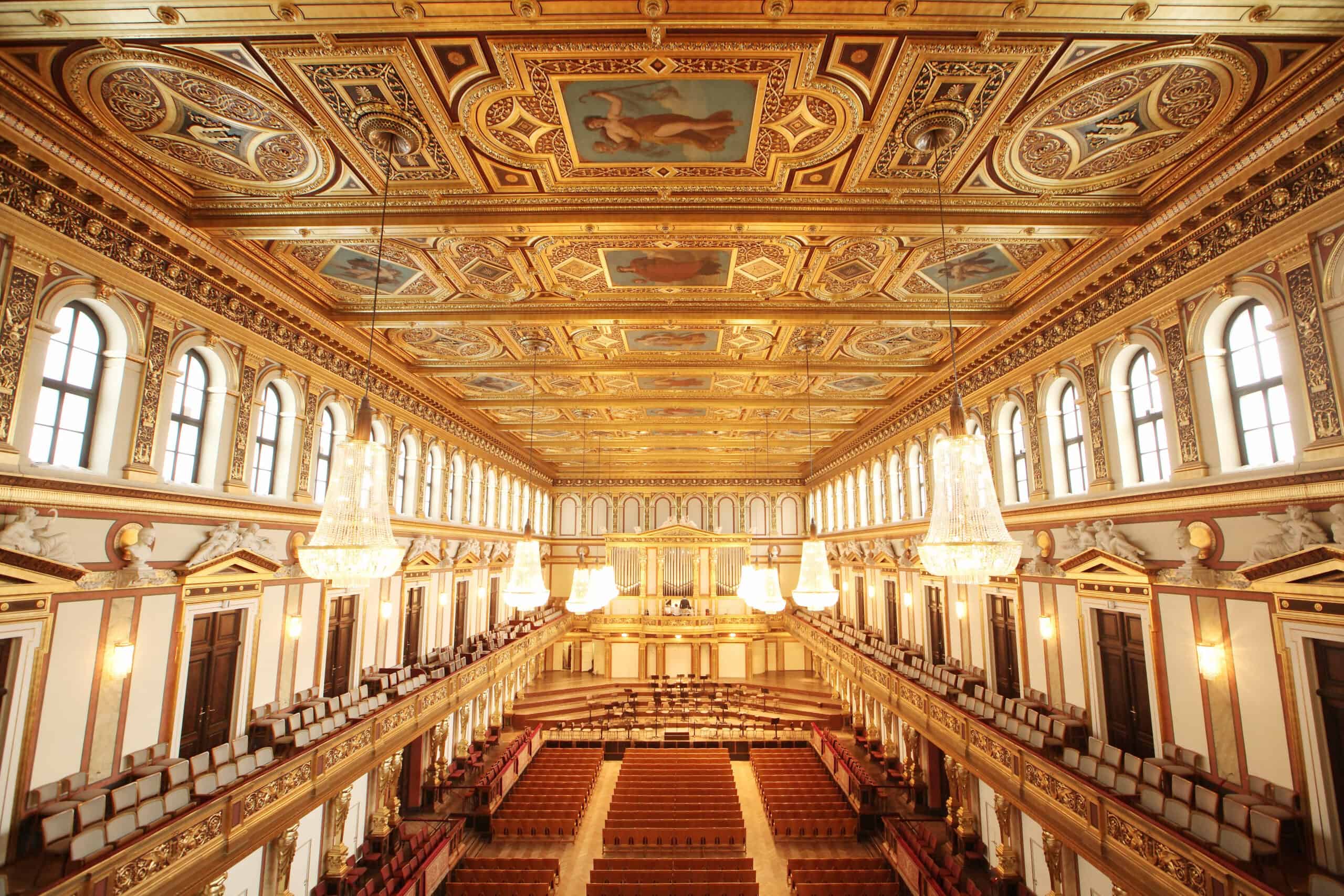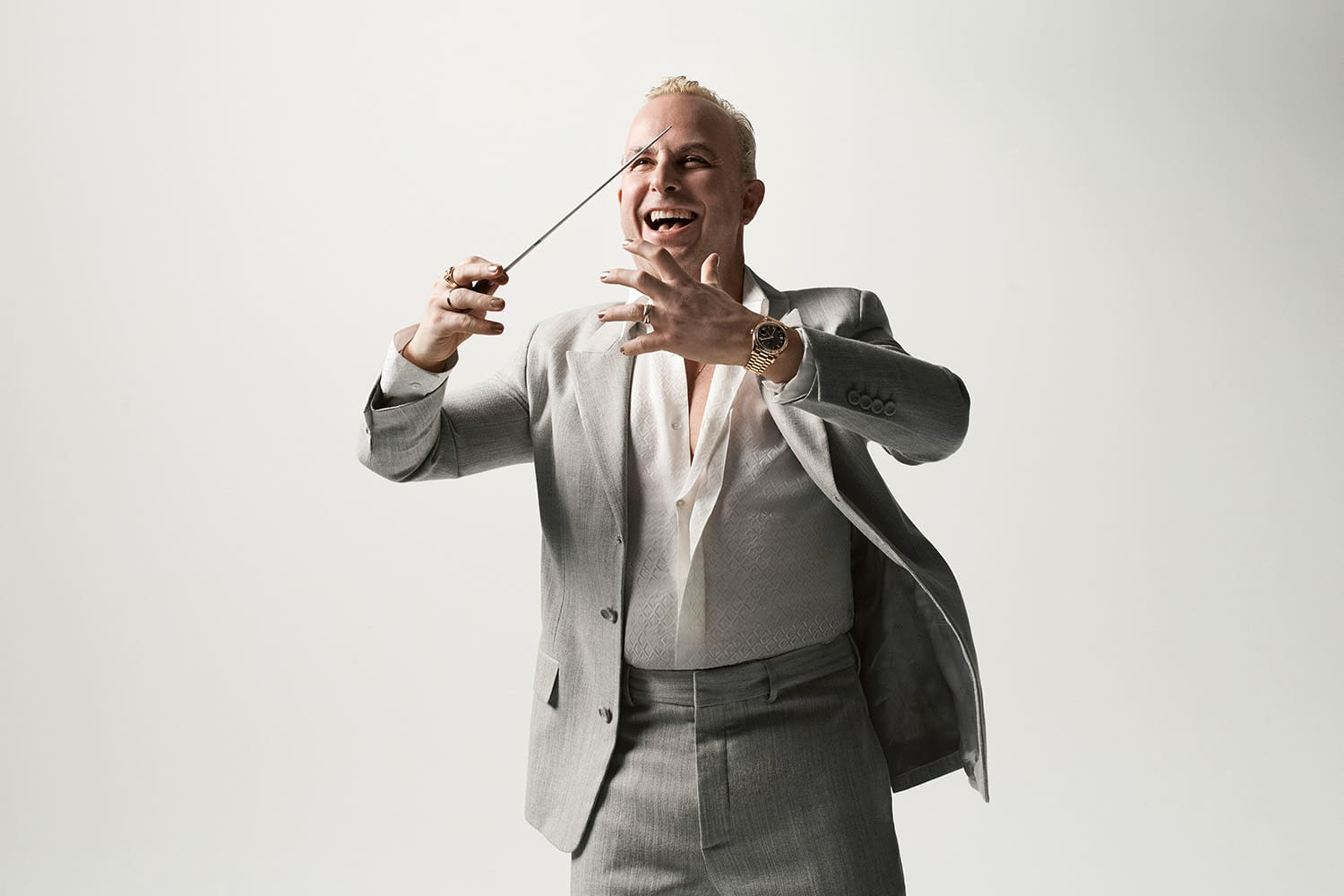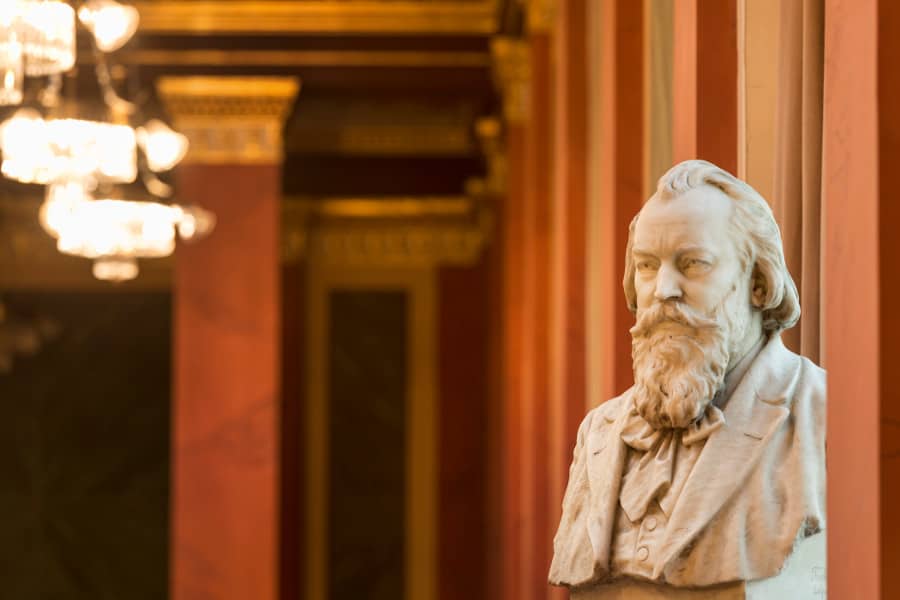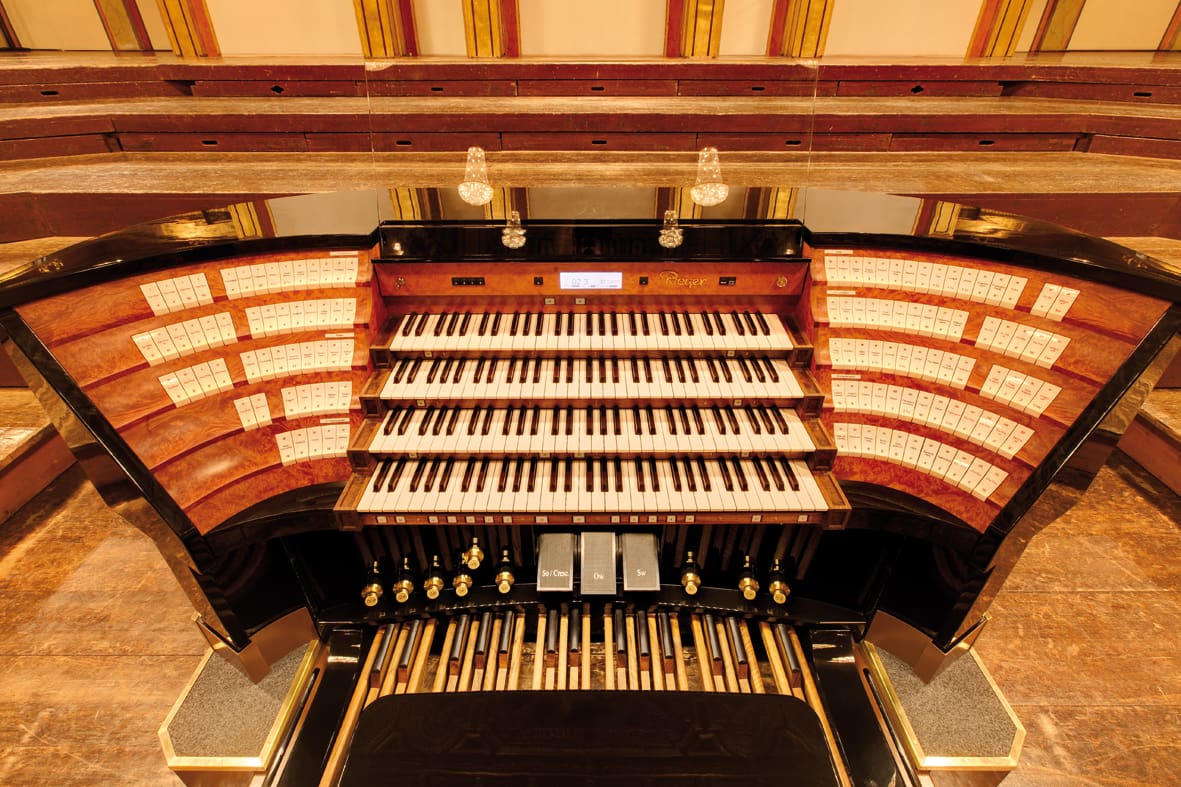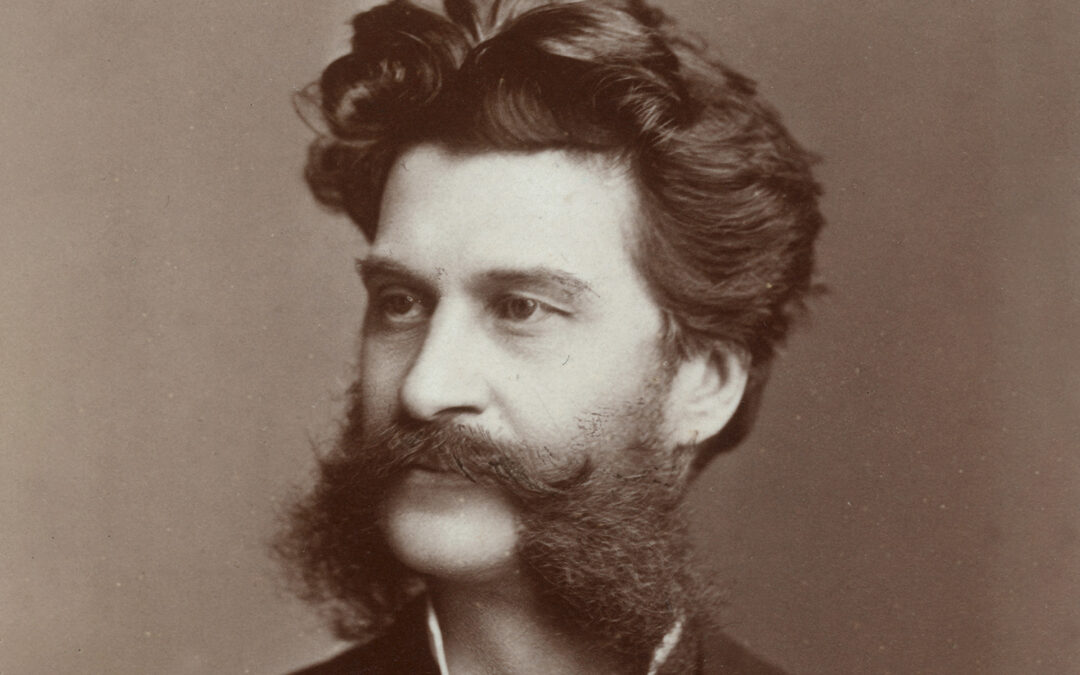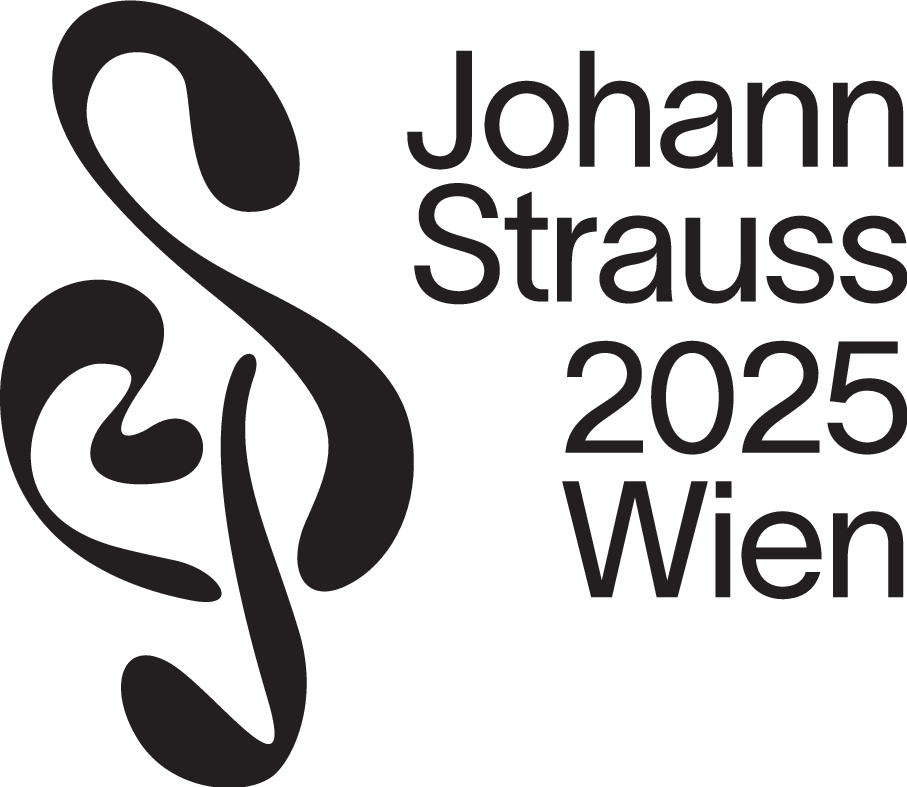Fine and fragrant
Johann Strauss (son) at the Musikverein
No music better illustrates the musical lightness of the
19th century. Century, framed by dancing congress and fin de siècle.
And no music is considered more “Viennese” today than the music of the Strauss family.
The 200.
The 200th birthday of the waltz king Johann Strauss (son) on October 25, 2025 casts its shadow ahead.
Reason enough to pay tribute to the honorary member of the Gesellschaft der Musikfreunde in Vienna now.
In collaboration with
Archive, Library and Collections of the Gesellschaft der Musikfreunde in Vienna
He produced the finest and most fragrant distillate from the famous Viennese air. This is what Alfred Polgar wrote about Johann Strauss. It is hardly possible to describe the music of the Waltz King more pointedly. Apart from Johann Strauss (son), no family member achieved the status of a style icon. Still, they were all musically successful: Johann (father), a trained bookbinder with Jewish roots (denied under National Socialism), founded the dynasty. He worked with Lanner on Viennese dance music and developed the waltz. He also established the Strauss Orchestra, which he founded as the leading dance orchestra in Vienna.
Johann Strauss (son) was supposed to work in banking after his unsuccessful studies at the Polytechnic, but to his father’s dismay, he founded his chapel. Of course, the son did not have an easy time with his dominant father. Despite successful tours, the junior experienced his breakthrough after the senior died in 1849. The Strauss Orchestra elected him as the new conductor, and at the same time, Johann Strauss (son) could take over most of his father’s contracts. His everyday life was labour-intensive and exhausting: at weekends, especially during the ball season, the Strauss band played for nights on end, sometimes in inns and dance halls in the suburbs and at the famous balls in the city centre. In between, they composed and arranged, only to perform again immediately. Extensive tours were undertaken in the summer.
Archive, Library and Collections of the Gesellschaft der Musikfreunde in Vienna
It should come as no surprise that the many performances and travels took their toll on the “Waltz King” even at a young age. He, therefore, repeatedly entrusted his younger brothers Josef and Eduard with the management of the Strauss Orchestra.
Johann Strauss (son) shifted his focus to operetta in 1871. Some of them were impressively successful: in Berlin in 1885, the 400th anniversary was celebrated. “Die Fledermaus” and the “Zigeunerbaron” were performed 87 times in a row at the Theater an der Wien. At the same time, he continued to compose dance music, often based on melodies from his operettas. He penned around 500 dances, often with imaginative titles: The “Tanzi-Bäri-Polka” is named after dancing bears. The title of the polka française, “Herrjemineh”, is also beautiful.
Strauss’ connection with the Gesellschaft der Musikfreunde in Vienna is evident in his contributions to the society’s anniversaries and celebrations. For example, he provided compositions and conducted at the 50th anniversary of the society in 1862 and at the opening of the new Musikverein building in 1870. Conversely, it was only natural that Johann Strauss’ anniversary as an artist in 1894 was celebrated at the Musikverein with a festive concert, for which the composer also contributed a new waltz. He was awarded honorary membership in the same year. After Johann Strauss’s (son) death, the Gesellschaft der Musikfreunde organised a funeral service with a performance of the Requiem by his friend Johannes Brahms and a memorial concert. – It may have been a small consolation that the great composer appointed the company as his universal heir. He will also be honoured in several concerts in the anniversary year: In the archived concert, his dances will be performed in the small orchestration so popular at the time, and Christian Thielemann will conduct a pasticcio from Strauss’ operettas with the Vienna Philharmonic. – Fine and fragrant!
Johannes Prominczel



